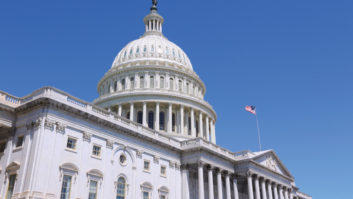FCC Chairman Ajit Pai put in a plug last Wednesday (May 15) for giving the FCC some fast-track broadcast deregulatory authority.
In a House Communications Subcommittee FCC oversight hearing Wednesday (May 15), he was asked by deregulatory minded Rep. Steve Scalise (R-La.) to comment on the state of the media marketplace and whether the FCC’s regulations matched it.
Pai signaled no. The chairman said that the disconnect between a moving marketplace and the “stasis” of FCC rules was the fundamental issue the FCC had with its media ownership rules.
He reiterated a suggestion he had made for the FCC to be able to respond as rapidly to competitive marketplace changes in the broadcast space as it can in the telecom and cable space, where it has forbearance authority.
That means that rather than having to launch a proceeding to remove a regulation, the FCC can effectively eliminate it by forbearing from enforcing it so long as it can be demonstrated that competition renders the reg no longer in the public interest to retain.
Pai said that if Congress granted it that same authority over broadcasting regulations that it had over telecom regulations, as he suggested six years ago he pointed out, it would “enable the FCC to work with much greater dispatch, would allow us to align our rules with the realities of the marketplace, and would allow you to see the benefits of the innovation and investment that could take place if we didn’t have rules on the books that were holding it back,” he said.
The chairman has been using the regular proposal, notice, comment and vote process to deregulate broadcast rules, including eliminating cross-ownership prohibitions and loosening restrictions on ownership of two of the top four stations in a market. But local market duopoly restrictions, a national ownership cap, dual network ownership prohibitions, and other restrictions remain to be addressed through that regular order.
[Subscribe to our newsletter and get it delivered right to your inbox.]




